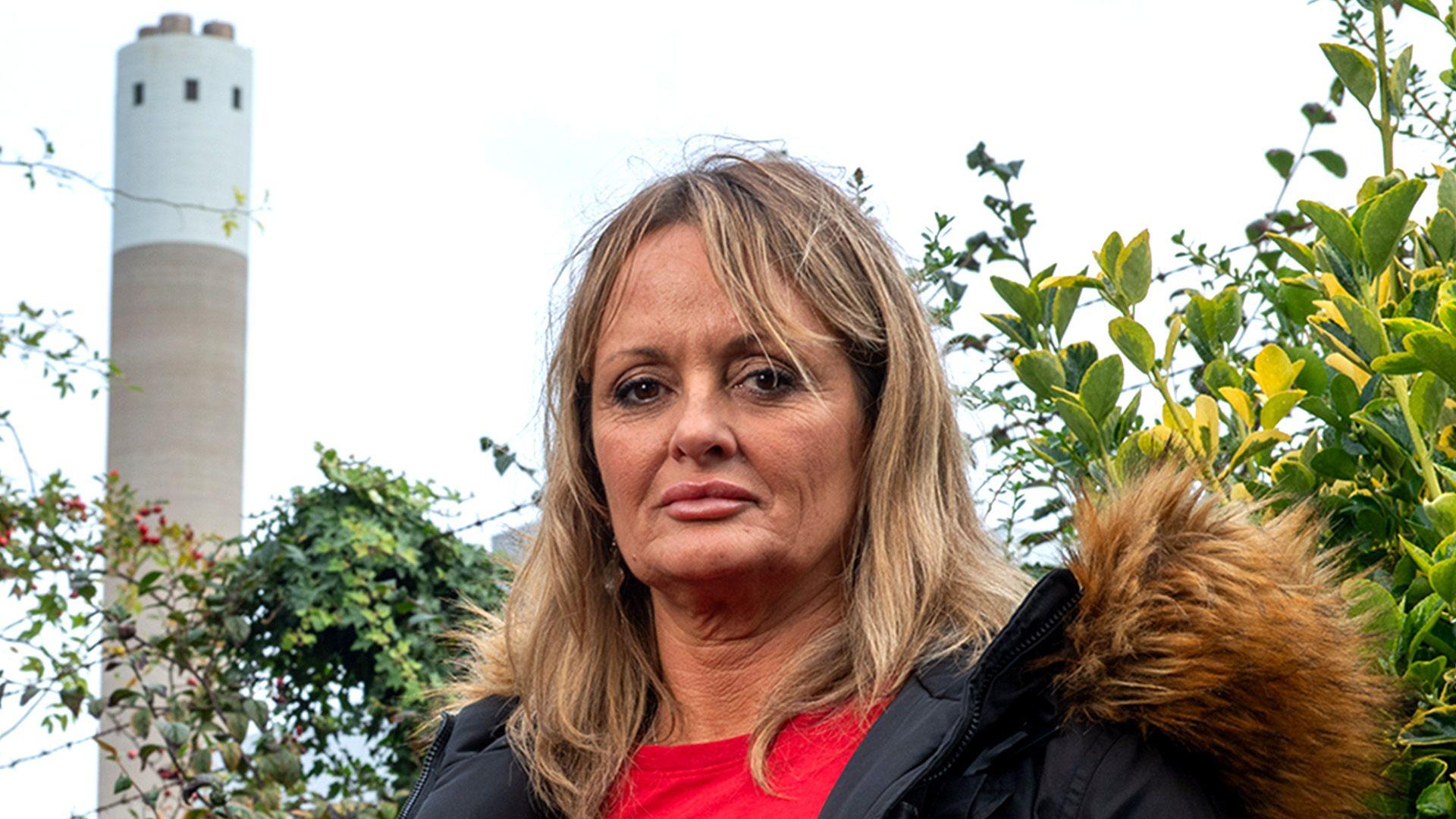Could we recycle more rubbish in North West?
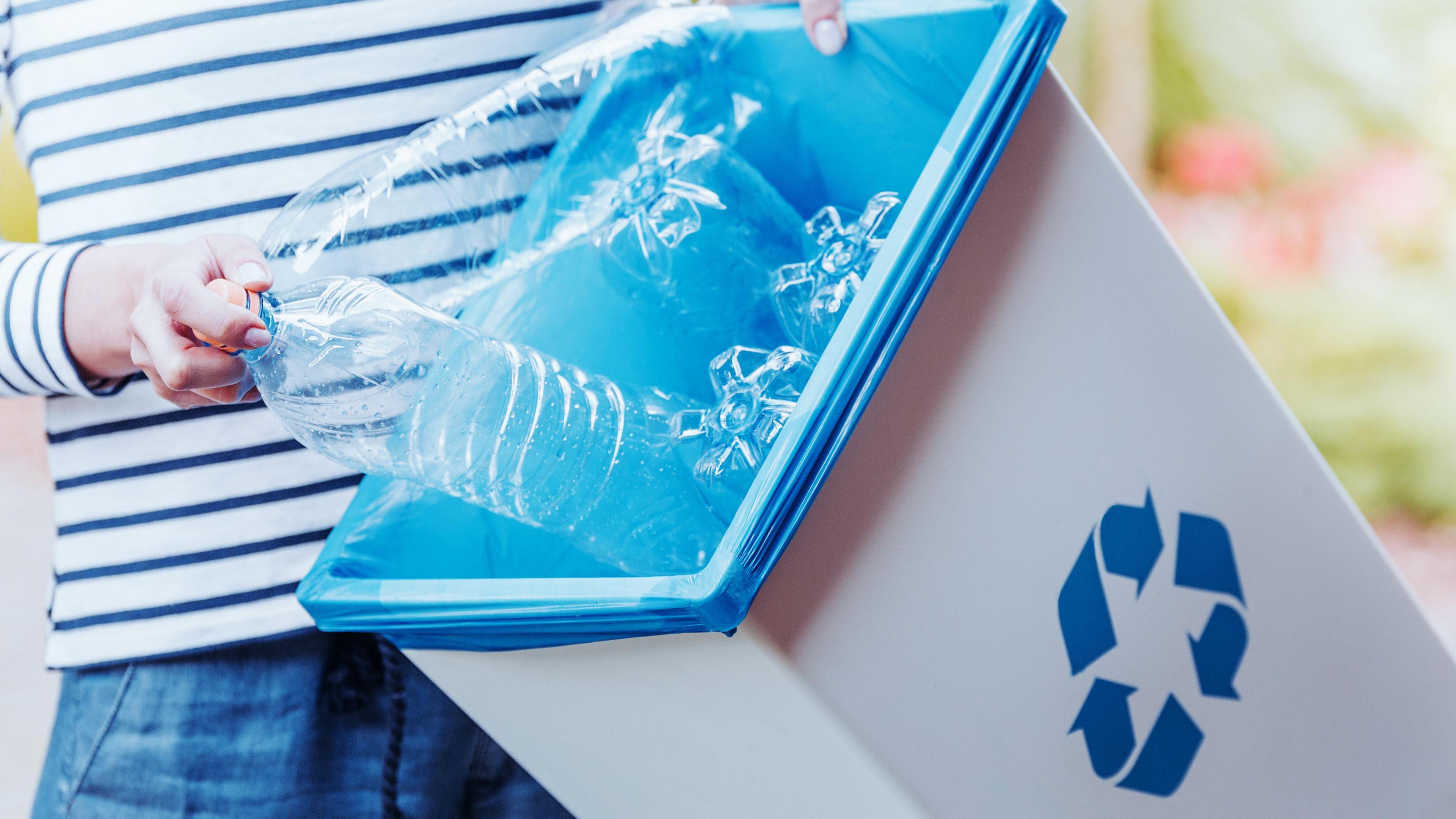
Some 290,000 tonnes of household waste are sent to landfill in the North West every year
- Published
It is a warm afternoon and the sky above the Whinney Hill landfill site near Accrington is full of seagulls.
Hundreds of them fly across the site, some landing to forage amongst the bags of rubbish. The air smells rancid.
The site has been operating since the 1970s and takes household waste from across East Lancashire, but it has grown and it is now expanding towards residential areas.
"It's best described as being horrific," says local resident Gary Hough when I ask him what it is like to live near the site.
"The mess that the gulls drop on your vehicles, on your home, onto your driveway, your garden furniture, your washing.
"Depending on the wind direction, the smell can vary from mild to absolutely disgusting."
Whinney Hill landfill site is run by Suez.
It said the firm was regulated by the Environment Agency and also explained that Lancashire has one of the largest seagull colonies in Europe.
After the coronavirus pandemic, the gulls came inland to find food.
"As the birds are a protected species, we are able to take non-lethal preventative measures to ensure the seagulls do not feed from the site, such as the use of gas canons, blank firing pistols, pyrotechnics, lasers and birds of prey," a spokesman says.
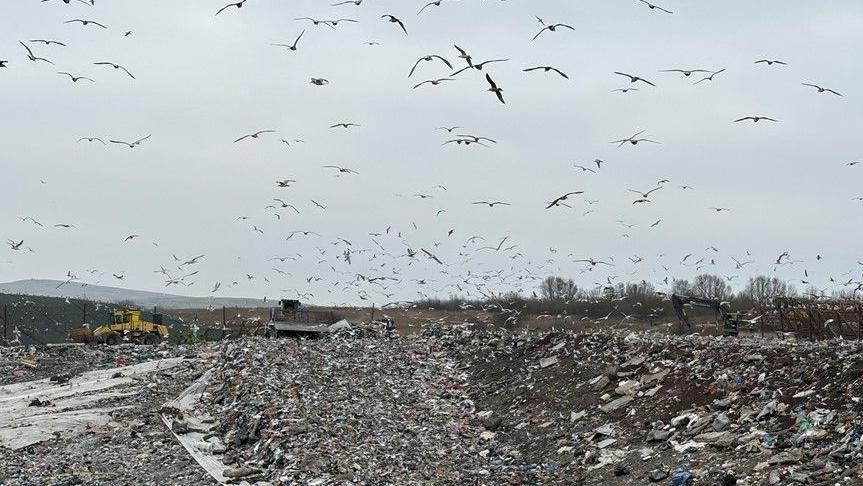
Residents have previously told the BBC the site's stench lingers in their home
Suez also says it regularly meets the local community to discuss concerns and it manages the smell by covering the waste and has landfill gas controls.
However, Mr Hough says residents want it closing down.
"Why should we suffer in a residential community from 15 boroughs worth of household waste?"
Almost all modern landfill sites collect the methane gas and generate electricity as a by product.
Dr Edward Randviir, senior lecturer in chemistry at Manchester Metropolitan University says: "There is a lot of environmental impacts of landfills.
"It creates biomethane which gets emitted to the atmosphere.
"Sometimes this is captured by the companies. Some waste gets out and gets blown around.
"Even though they are encased within these cells, you do get some pollution which leaches out, even though there are mechanisms to try and stop that from happening."
Landfill is seen as the worst option for our black bin waste.
We have been burying our rubbish for decades and despite attempts to reduce it, about 8% still goes to landfill.
In the North West of England, we send 290,000 tonnes of household waste to landfill every year.
There are 50 landfill sites in the region and 21 are already at capacity.
In a bid to reduce how much we send to landfill, councils have been hit with higher charges.
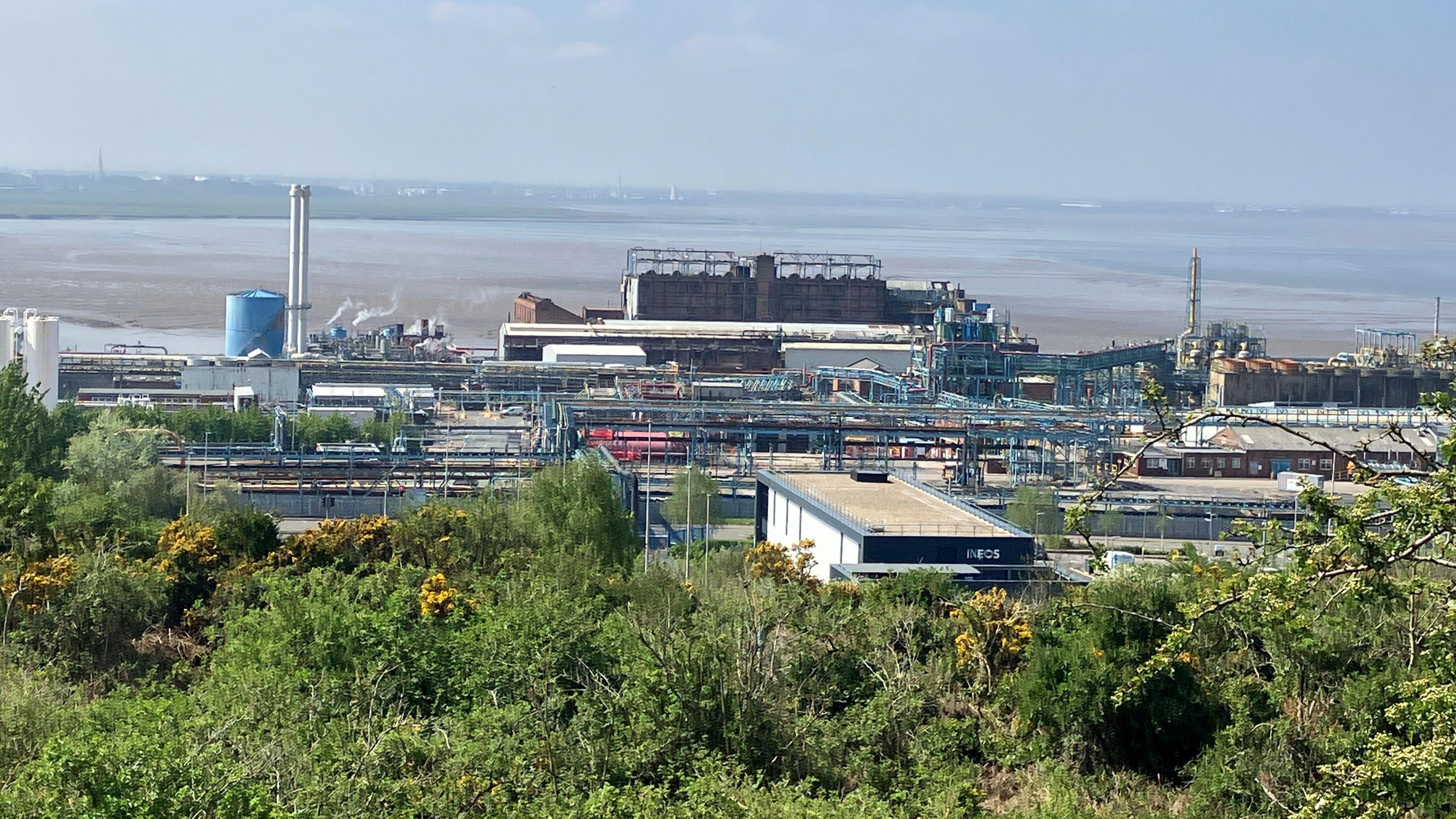
The view of The EFW Facility in Runcorn from Ralph Owen's house
The main alternative is to burn it.
We send about 43% of our region's waste to incinerators like the EFW Facility in Runcorn, which is run by Viridor.
Viridor burns 3.5 million tonnes of rubbish every year at all of its sites, rubbish which can't be recycled.
The process creates electricity, but here too some residents are unhappy.
The incinerator blocks Ralph Owen's view of the Mersey Estuary.
"The noise from the plant is incessant," he says.
"It's a dull, droning noise. I don't open my bedroom windows at night.
"The noise is too disturbing…to have actually moved what is a dirty industry so close, beggars belief."
He is also worried about the local air quality.
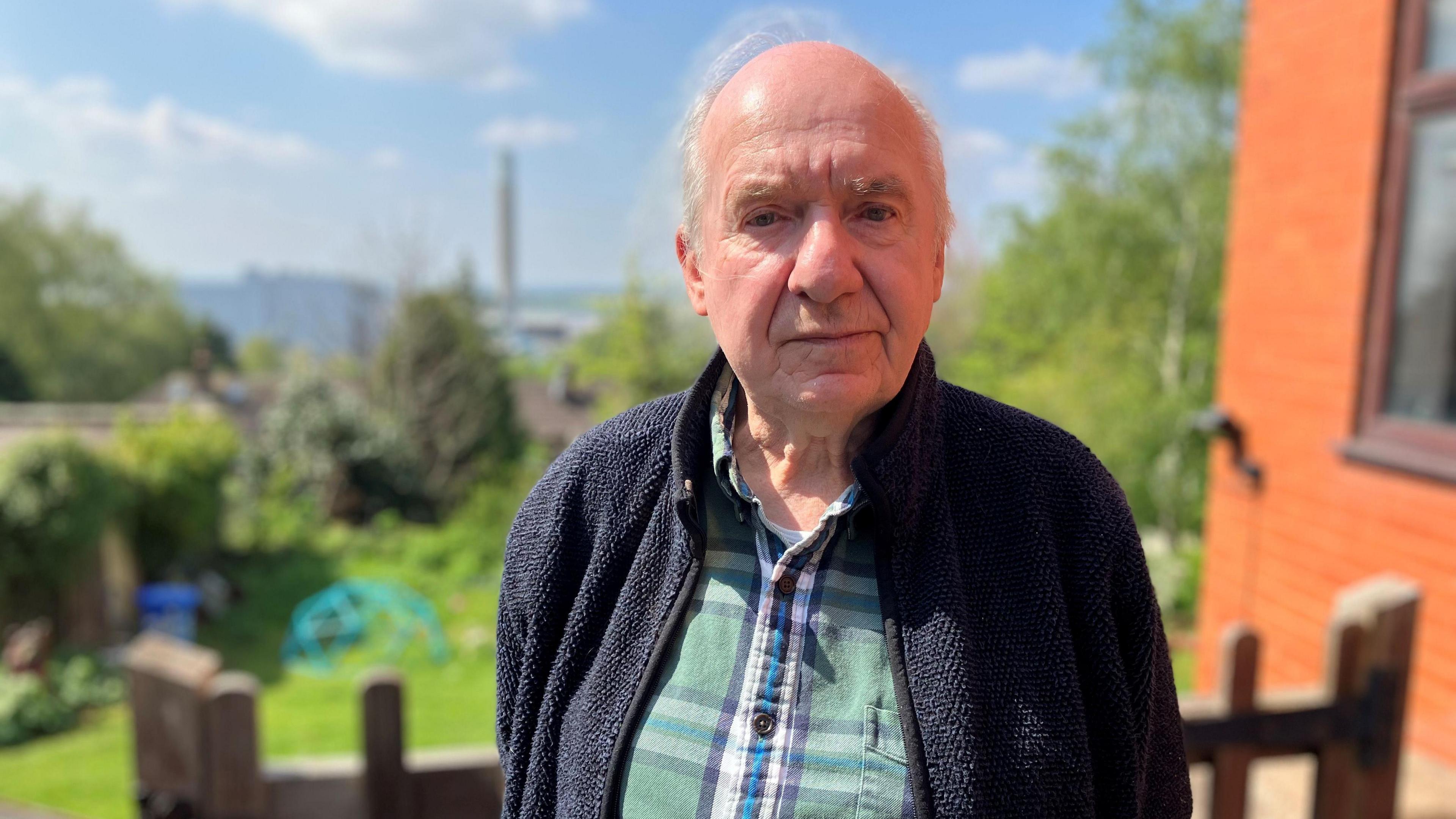
Ralph describes the noise caused by the incinerator as incessant
Operators have an obligation to capture any toxic gases.
Viridor says its operation is preventing millions of tonnes of waste going to landfill and it takes its environmental responsibility seriously.
It says it has "state-of-the-art processing and filtration systems that ensure emissions comply with environmental permits and wider regulation".
The site here is set to expand to build a carbon capture plant.
Mr Owen says that means more industry on his doorstep.
So what about levels of recycling? And why aren't they more impressive?
We recycle just 45% of household waste in the region.
In Greater Manchester about 100,000 tonnes of cans and plastic bottles a year end up at the combined authority's recycling centre in Sharston.
Levels of recycling in the region are above the national average though.
For example, Stockport recycles about 60% of its household waste.
Nationally, levels of recycling are stagnating.
Alison Fare, from Recycling Greater Manchester, says: "I think we've hit a point nationally where most places are recycling as much as they can."
She says once they have a new materials recovery facility, they will be able to recycle plastic bags, films and wrappings. But the levels are also affected by contaminated loads.
'Collective responsibility'
Daniel Carolan, from Suez, which runs the centre, says: "It's a real shame if the teams have been out for two or three hours and the bin wagon is full.
"They might have collected 400 or 500 bins that day, but if 10 of them have the wrong things inside, it affects the whole load."
While he thinks people could recycle more he believes the answer is a much bigger issues.
"We can't recycle ourselves out of trouble," he says.
"We need to re- educate ourselves, and ask does this need to be thrown away, or could it be reused or repaired?"
And that solution is echoed by many.
Dr Randviir says: "We have to have a collective responsibility for waste.
"Not least because it is a wicked problem.
"It is not just the collectors who have a responsibility, it is us as consumers, it is us as disposers of waste.
"We all have a collective responsibility in my view."
Correction 16 July 2025: On 14 July this article was amended to reflect that 290,000 tonnes of household waste went to landfill in the North West. It had previously said 290 tonnes. It was also updated to make it clear that Viridor burns 3.5 million tonnes across all of its sites and not just at the Runcorn facility.
The article originally said that In Greater Manchester about a million tonnes of cans and plastic bottles a year end up at the combined authority's recycling centre in Sharston. This was corrected on 16 July to say 100,000 tonnes.
The story was also updated to include more context about modern landfill sites collecting methane gas and electricity as a byproduct.
Get in touch
Tell us which stories we should cover in the North West
Read more stories from Cheshire, Lancashire, Greater Manchester and Merseyside on the BBC, watch BBC North West Tonight on BBC iPlayer and follow BBC North West on X, external.
Related topics
Related stories
- Published19 February
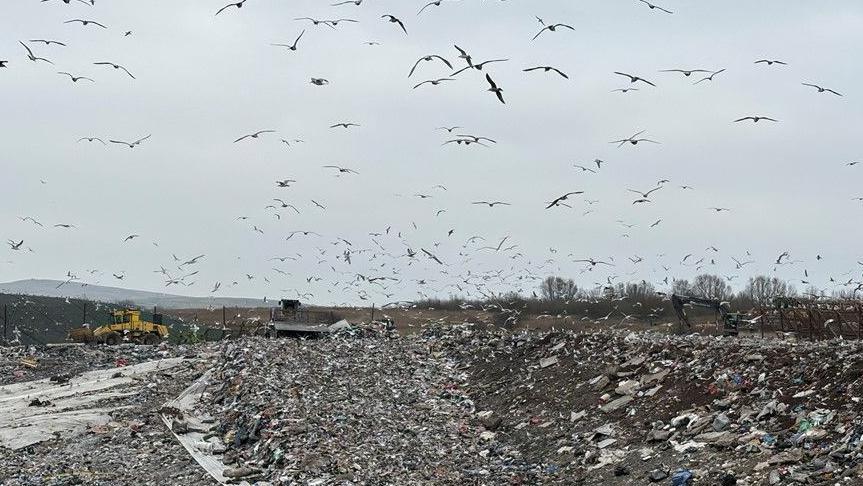
- Published16 October 2024
